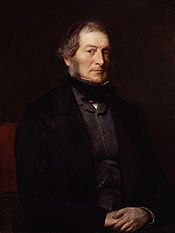This article's use of external links may not follow Wikipedia's policies or guidelines. (April 2022) |

Science education in England is generally regulated at all levels for assessments that are England's, from 'primary' to 'tertiary' (university). Below university level, science education is the responsibility of three bodies: the Department for Education, Ofqual and the QAA, but at university level, science education is regulated by various professional bodies, and the Bologna Process via the QAA. The QAA also regulates science education for some qualifications that are not university degrees via various qualification boards, but not content for GCSEs, and GCE AS and A levels. Ofqual on the other hand regulates science education for GCSEs and AS/A levels, as well as all other qualifications, except those covered by the QAA, also via qualification boards.
The Department for Education prescribes the content for science education for GCSEs and AS/A levels,[1] which is implemented by the qualification boards, who are then regulated by Ofqual. The Department for Education also regulates science education for students aged 16 years and under. The department's policies on science education (and indeed all subjects) are implemented by local government authorities on all state schools (also called publicly funded schools) in England. The content of the nationally organised science curriculum (along with other subjects) for England is published in the National Curriculum, which covers key stage 1 (KS1), key stage 2 (KS2), key stage 3 (KS3) and key stage 4 (KS4). The four key stages can be grouped a number of ways; how they are grouped significantly affects the way the science curriculum is delivered. In state schools, the four key stages are grouped into KS1–2 and KS3–4; KS1–2 covers primary education while KS3–4 covers secondary education. But in private or public (which in the United Kingdom are historic independent) schools (not to be confused with 'publicly funded' schools), the key stage grouping is more variable, and rather than using the terms ‘primary’ and 'secondary’, the terms ‘prep’ and ‘senior’ are used instead.
Science is a compulsory subject in the National Curriculum of England, Wales and Northern Ireland;[2] state schools have to follow the National Curriculum while independent schools need not follow it. That said, science is compulsory in the Common Entrance Examination for entry into senior schools, so it does feature prominently in the curricula of independent schools. Beyond the National Curriculum and Common Entrance Examination, science is voluntary, but the government of the United Kingdom (comprising England, Wales, Scotland and Northern Ireland) provides incentives for students to continue studying science subjects. Science is regarded as vital to the economic growth of the United Kingdom (UK).[3] For students aged 16 years (the upper limit of compulsory school age in England, but not compulsory education as a whole) and over, there is no compulsory nationally organised science curriculum for all state/publicly funded education providers in England to follow, and individual providers can set their own content, although they often (and in the case of England's state/publicly funded post-16 schools and colleges have to[4][5][6]) get their science (and indeed all) courses accredited or made satisfactory (ultimately by either Ofqual or the QAA via the qualification boards). Universities do not need such approval, but there is a reason for them to seek accreditation regardless. Moreover, UK universities have obligations to the Bologna Process to ensure high standards. Science education in England has undergone significant changes over the centuries; facing challenges over that period, and still facing challenges to this day.
- ^ Department for Education (2014). GCE AS and A level subject content for biology, chemistry, physics and psychology. AS and A level subject content and requirements. Department for Education.
- ^ Education Reform Act 1988 c40. HMSO. 1989. ISBN 0-10-544088-4.
- ^ House of Commons, Science and Technology Committee (2015). The science budget: First Report of Session 2015–16. House of Commons.
- ^ Ofqual (8 March 2017). "Guidance: Apply to have your qualifications regulated". gov.uk. Retrieved 7 August 2017.
- ^ Quality Assurance Agency for Higher Education. "Access to Higher Education: Access Validating Agency profiles". The Quality Assurance Agency for Higher Education. Retrieved 8 August 2017.
- ^ The Quality Assurance Agency for Higher Education. "QAA: About us". The Quality Assurance Agency for Higher Education. Retrieved 9 August 2017.